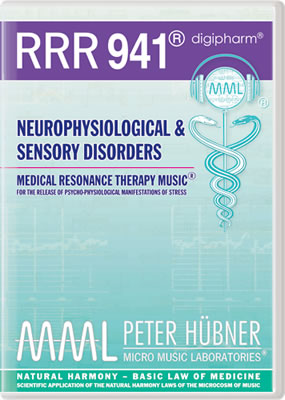| Scientific Music Medicine | |
| Home • Site Map • Research • Reports • Intern. Experts • Music Preparations • Fundamentals • Peter Hübner • Store • Contact | |

Prof. Dr. med. Rosch / Prof. Dr. med. Koeditz • Music & Brain – Medical Perspective
Music & Medicine today
Music as medical discipline – how realistic are such ideas of music medicine today?
If one looks at the findings of modern neuroscience and at the importance of the sense organs for the brain, then the software of the sensual experiences comes into the focus of medical experts.
Among the impulses of the sense organs the ones of the ear take a special position. Today we have ample prove, that music, of the correct order, is medically effective (5).
If one looks at the findings of modern neuroscience and at the importance of the sense organs for the brain, then the software of the sensual experiences comes into the focus of medical experts.
Among the impulses of the sense organs the ones of the ear take a special position. Today we have ample prove, that music, of the correct order, is medically effective (5).
Where in the brain is music deciphered?
Probably the most important finding of neuroscience in regard to music is, that there is not a musical centre in the brain, but that most of the brain systems take part in experiencing and processing music (1, 6).
Our most important brain systems share in recording and processing the multi-layered data structures of music. Experiencing and playing music involves our highest emotional, cognitive and motoric abilities (6).
Our most important brain systems share in recording and processing the multi-layered data structures of music. Experiencing and playing music involves our highest emotional, cognitive and motoric abilities (6).
Three Main Systems of the Brain are involved:
- The brain systems for representing our emotions
- The brain systems for the representation of cognitive abilities
- The brain systems for activating and controlling the muscles
1. The brain systems
for representing our emotions
for representing our emotions
In the first place music is a “language of the soul“, that is able to move our emotion like hardly any other means. There is probably no quality of our heart which could not be stimulated by music. As Peter Hübner explains in his book Natural Music Creation (7) the classical composer always sees his task of bringing man into contact with his soul through the language of music, to make him feel familiar with his inner world and to train him to use his inner human forces in a harmonious way.
Recording, processing and speaking the musical language of emotion demands the activation of our brain systems which represent our emotions. This activation is of utmost importance to medicine, since these brain systems take a share in governing all important physiological processes.
As modern stress medicine shows, a loss of emotional harmony negatively influences – via a cascade of processes – the activity of the body almost unlike any other cause. The breathing system, the nervous system, the endocrine system, the immune system, the metabolic system, the cardiovascular system, the motoric system, the temperature system, the tension profile, the pain system, the rhythmical system: all of them are co-governed decisively by the brain systems of emotions. How essentially the brain systems, interlinked with emotion, influence the organism is best documented by stress medicine, which has recognised how an emotional shock can lead to a complete collapse of vital functions.
Therefore a medically controlled influence on these mighty, emotionally governed brain systems is of greatest relevance for health. And hardly anything else can achieve this medical access better than a music correctly designed for medical purpose.
As the scientific investigations and clinical observations with the Medical Resonance Therapy Music® (see also the music part of the essay) of the classical composer and musicologist Peter Hübner show, all of the above mentioned systems of the organism react positively to listening to this medical music.
Recording, processing and speaking the musical language of emotion demands the activation of our brain systems which represent our emotions. This activation is of utmost importance to medicine, since these brain systems take a share in governing all important physiological processes.
As modern stress medicine shows, a loss of emotional harmony negatively influences – via a cascade of processes – the activity of the body almost unlike any other cause. The breathing system, the nervous system, the endocrine system, the immune system, the metabolic system, the cardiovascular system, the motoric system, the temperature system, the tension profile, the pain system, the rhythmical system: all of them are co-governed decisively by the brain systems of emotions. How essentially the brain systems, interlinked with emotion, influence the organism is best documented by stress medicine, which has recognised how an emotional shock can lead to a complete collapse of vital functions.
Therefore a medically controlled influence on these mighty, emotionally governed brain systems is of greatest relevance for health. And hardly anything else can achieve this medical access better than a music correctly designed for medical purpose.
As the scientific investigations and clinical observations with the Medical Resonance Therapy Music® (see also the music part of the essay) of the classical composer and musicologist Peter Hübner show, all of the above mentioned systems of the organism react positively to listening to this medical music.
|
MEDICAL RESONANCE THERAPY MUSIC® Medical Music Preparations on CD |
|||
|
With kind permission of AAR EDITION INTERNATIONAL
© 1998- SCIENTIFIC MUSIC MEDICINE | Contact
Subject to change in the interests of scientific advancement.
© 1998- SCIENTIFIC MUSIC MEDICINE | Contact
Subject to change in the interests of scientific advancement.
